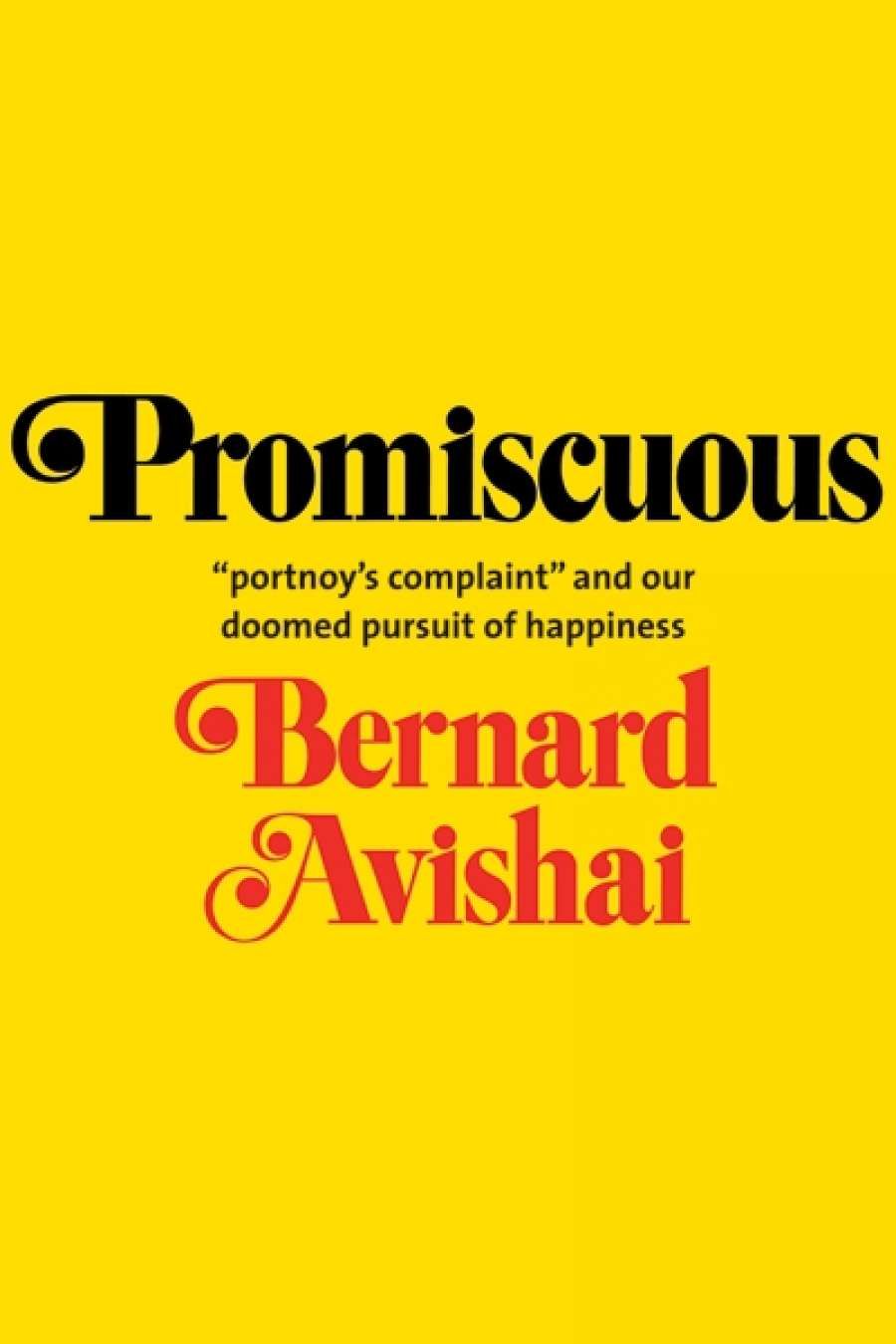
- Free Article: No
- Contents Category: Literary Studies
- Review Article: Yes
- Online Only: No
- Custom Highlight Text:
I nitially banned in Australia, Portnoy’s Complaint (1969) is Philip Roth’s early, bestselling, satirical tour de force. Alexander Portnoy addresses a long monologue to his analyst, Dr Spielvogel. Among other things, the monologue tackles Portnoy’s erotic and ethical shortcomings, lingering in particular over his father’s familial and economic emasculation, his mother’s overbearing cleanliness and affection, his fraught relationship to Jewishness, and a selection of doomed love interests. Portnoy’s Complaint is by turns comedic, tragic, confronting, illuminating, anguished, and jubilant.
- Book 1 Title: Promiscuous
- Book 1 Subtitle: Portnoy’s Complaint and Our Doomed Pursuit of Happiness
- Book 1 Biblio: Yale University Press (Inbooks), $32.95 hb, 230 pp, 9780300151909
The career-long resonance of Kafka’s oeuvre for Roth is reflected in Portnoy’s Complaint. To summarise: one morning Alex Portnoy – an intelligent Jewish-American boy with precociously developed moral standards – woke to discover that he had been transformed into a monstrous masturbator. Two decades later he is still dealing with the turmoil of this awakening.
Promiscuous is aimed at the generation that first encountered Roth’s novel, and invites it to relive and explore the underlying social and political context. Bernard Avishai insinuates that Portnoy’s initial readers were too caught up in its exhilarating onanistic revelations to chart itsother compelling features, and that the time is now ripe for those qualities to be recognised.
The titular ‘doomed pursuit of happiness’ reveals an overarching focus; anchored in a peculiarly limited social context, Promiscuous addresses the experience of middle-class American Jews who came of age in the 1960s, coinciding with the continuing emergence of a broadly American culture of grossly conflicting desires: consumers who want more and more pleasure, on the one hand, while demanding higher standards of moral purity on the other.
Avishai’s analysis is simultaneously expansive and limited; he draws on popular and private resources, while avoiding the insights of academic Roth scholars, and interrogates the book’s social significance instead of analysing its deeper meanings. Promiscuous is also something of a personal analysis: it charts Avishai’s friendship and discussions with Roth, and employs the insights of family members and friends alongside Thomas Hobbes, John Locke, Benjamin Franklin, and D.H. Lawrence – occasionally to good effect.
The fact that Portnoy is still widely read and much discussed is used to validate Avishai’s energetic evaluation. He writes: ‘my book assumes a problem: why Portnoy’s Complaint became so popular, ... how its roster of personalities came to stand for categories, what ethics it implies – why it bugs us.’ This is a sweeping ‘problem’, and the result of such a loose focus is that Promiscuous takes the form of a discursive ‘riff’ on themes relating to Portnoy – a needless imitation of Roth’s writing style, particularly given that the book already risks the charge of self-indulgence with its near-gossipy Roth anecdotes. There is also the odd clumsy moment: ‘David Lynch’s sexual predator in his 1986 film Blue Velvet faces the film’s callow young hero and tells him, ‘You’re just like me!’ Could we imagine just what the creep meant by this had the tracks laid down by Portnoy’s Complaint become grooved by then? ’
This is clearly fanciful. The preceding six-decade history of surrealist film was the ‘grooved track’ leading to our comprehension of what Lynch’s creep means. Confronting bourgeois culture with the absence of self-possession was nothing new in 1969, even if it retained its shock. Think of Sade, Freud, Alfred Jarry, Céline, the Dada movement, Nathanael West, Luis Buñuel, etc.
But there is also much to admire. Avishai’s focus on Roth’s satirical application of psychoanalytic discourse is fruitful, if unoriginal, and he usefully contextualises Portnoy’s ‘brazen’ attack on his American-Jewish family less than three decades after the Holocaust – a period when, according to Avishai, American Jews were afforded unusual moral authority within the realms of American culture. This moral authority had its benefits, but was also restrictive for a writer of Roth’s temperament. Roth’s own notes (provided to Avishai) are revealing:
Masturbation, which seems to have made the book famous,was the least of it. It was the aggressive rage, the ingratitude, the hatred that was most shameful.
I had published three responsible books. Responsible to what? Was not looking for my catharsis as patient, a neurotic, a son. Looking, as one perpetually looks, for my freedom as a writer.
In line with these comments, Avishai presents Portnoy’s Complaint as a literary gasp of air – or laughter – drawn from a suffocating cultural context. The result was that, ‘Within months of publishing Portnoy’s Complaint, Roth was angrily, publicly denounced’: a pattern that would be repeated throughout his career.
Promiscuous beckons us to reconsider the significance of Roth’s satire, and recalls the excitement and hostility of its reception.


Comments powered by CComment